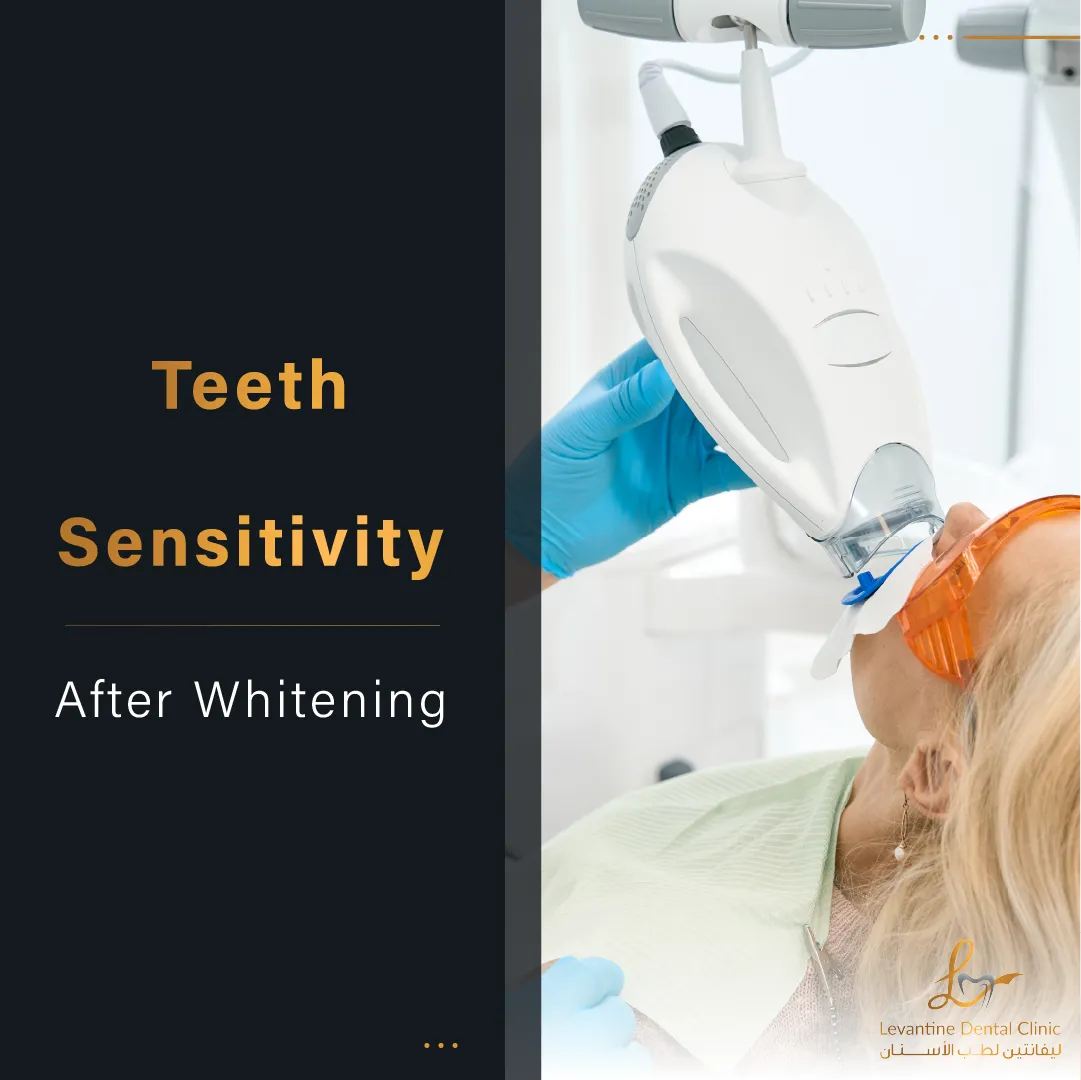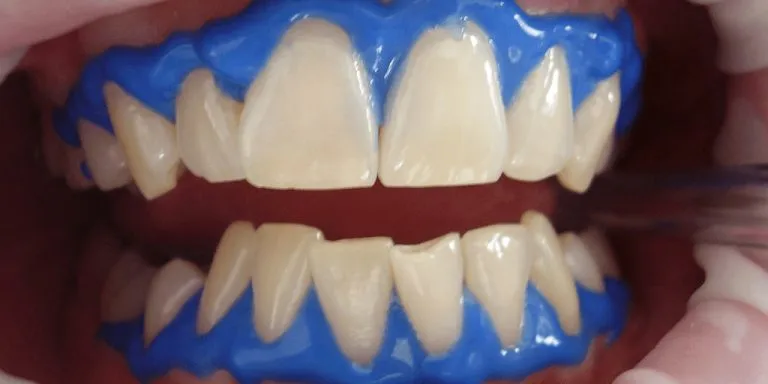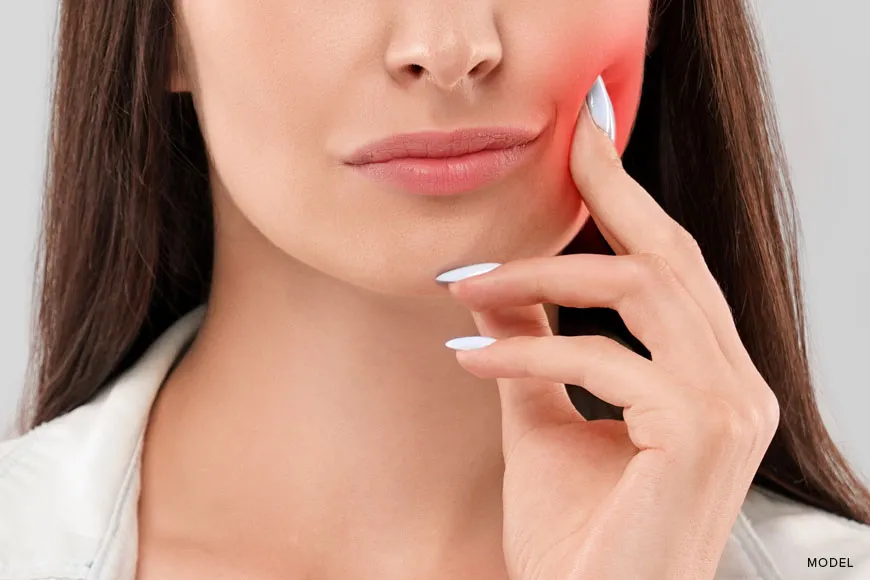Understanding Teeth Whitening Sensitivity
Teeth whitening is a popular cosmetic procedure that can significantly improve your smile. However, a common side effect experienced by many individuals is tooth sensitivity. This sensitivity can range from mild discomfort to sharp, shooting pains, and it’s often temporary. Understanding the causes and how to manage this sensitivity is crucial for a comfortable and successful teeth whitening experience. This article will delve into the science behind teeth whitening sensitivity, explore the various factors that contribute to it, and provide actionable tips to minimize discomfort. Furthermore, we will cover the importance of consulting with a dental professional to ensure the best possible outcome for your oral health needs.
What Causes Teeth Sensitivity
Tooth sensitivity during teeth whitening arises from the way the whitening agents interact with your teeth’s structure. The primary culprits are the active ingredients in whitening products, such as hydrogen peroxide or carbamide peroxide. These chemicals penetrate the enamel and dentin of your teeth to break down stain molecules. However, this process can also irritate the nerves inside your teeth, leading to sensitivity. The dentin, which lies beneath the enamel, contains microscopic tubules that lead directly to the nerve of the tooth. When these tubules are exposed or the enamel is weakened, the whitening agents can more easily reach the nerve, causing pain or discomfort. Several factors can influence the level of sensitivity you experience, including the concentration of the whitening agent, the duration of application, and your individual oral health.
The Role of Hydrogen Peroxide

Hydrogen peroxide is the workhorse of most teeth whitening products. It works by releasing oxygen molecules that break down the stain molecules embedded in your teeth’s enamel. The higher the concentration of hydrogen peroxide, the faster and more effective the whitening process, but also, the greater the potential for sensitivity. The oxygen molecules, while breaking down stains, can also cause the enamel to become slightly porous. This porosity allows the whitening agent to penetrate deeper, reaching the nerve endings and causing sensitivity. Products used at home have lower concentrations, while those applied by a dentist have higher concentrations. The effectiveness of hydrogen peroxide depends on factors like the contact time with your teeth, the presence of protective agents, and your natural tooth structure.
Top 7 Tips to Reduce Teeth Whitening Sensitivity
Choose the Right Whitening Product
Not all teeth whitening products are created equal. If you have sensitive teeth, opt for products with lower concentrations of hydrogen peroxide or carbamide peroxide. Over-the-counter whitening strips, toothpastes, and gels typically contain lower concentrations than those used by dentists. Consider products specifically designed for sensitive teeth, as they often contain ingredients to minimize irritation. If you’re using professional whitening services, discuss your sensitivity concerns with your dentist. They can adjust the treatment plan to use a less potent formula or shorten the treatment duration to help reduce discomfort. The key is to find a product that balances effectiveness with your comfort level.
Consider Sensitivity Toothpaste

Sensitivity toothpastes contain ingredients, such as potassium nitrate, that help block the tubules in your dentin, reducing nerve irritation. Start using sensitivity toothpaste a couple of weeks before beginning your whitening treatment. This will help desensitize your teeth. Continue using the toothpaste throughout the whitening process and for a few weeks afterward to maintain the protective effect. It’s important to brush gently and thoroughly to ensure the toothpaste effectively covers all tooth surfaces. Regular use of sensitivity toothpaste is a proactive measure that can significantly reduce the likelihood of discomfort during teeth whitening, making the experience much more manageable.
Use Fluoride Treatments
Fluoride strengthens tooth enamel, making it more resistant to sensitivity. You can obtain fluoride treatments from your dentist in the form of gels, varnishes, or prescription-strength toothpaste. These treatments help to remineralize the enamel, reducing its porosity and sealing the tubules in the dentin. If you’re undergoing professional teeth whitening, your dentist may apply a fluoride treatment after each session to help alleviate sensitivity. If whitening at home, ask your dentist about using a fluoride rinse or toothpaste to supplement your whitening routine. Proper use of fluoride is an effective way to minimize sensitivity and promote overall oral health, ensuring that your teeth are strong and less vulnerable to irritation during the whitening process.
Adjust Whitening Frequency
Overuse of teeth whitening products can exacerbate sensitivity. Follow the manufacturer’s instructions carefully regarding how often to apply the product. If you experience sensitivity, reduce the frequency of treatments. For example, if you’re using whitening strips daily, try using them every other day or every few days. If you’re undergoing professional whitening, discuss adjusting the treatment schedule with your dentist. They may recommend spacing out the sessions or using a less aggressive approach. Be patient and don’t rush the process. Whitening is a gradual process, and it’s better to achieve results slowly while minimizing sensitivity than to risk significant discomfort. Listen to your teeth and adjust the frequency accordingly.
Limit Sugar and Acidic Foods

Sugar and acidic foods can erode tooth enamel and increase sensitivity. During teeth whitening, it’s best to limit your intake of these foods and drinks. Acidic foods, such as citrus fruits, tomatoes, and vinegar-based dressings, can temporarily soften the enamel, making your teeth more susceptible to sensitivity. Sugary foods and drinks contribute to plaque buildup, which can also irritate your gums and teeth. After consuming acidic foods, rinse your mouth with water to neutralize the acids. Wait at least 30 minutes before brushing your teeth to allow the enamel to re-harden. Choose a balanced diet rich in calcium, which helps to strengthen your teeth and protect them from sensitivity. A healthy diet supports both your teeth whitening efforts and overall oral health.
Stay Hydrated
Staying hydrated is essential for overall oral health. Drinking plenty of water helps to keep your mouth moist, which can reduce sensitivity. Saliva has a protective effect on your teeth, neutralizing acids and helping to remineralize the enamel. Dehydration can lead to dry mouth, which can increase sensitivity. Drink water throughout the day, especially after eating or drinking anything acidic or sugary. Avoid sugary drinks and opt for water, which is the best choice for your teeth. Proper hydration supports your overall oral health and can minimize discomfort during teeth whitening, ensuring a more pleasant experience. Consider carrying a water bottle and sipping water regularly.
Consult Your Dentist
Your dentist is your best resource for managing teeth whitening sensitivity. Before starting any whitening treatment, schedule a consultation to discuss your oral health history and any potential risk factors. They can assess your teeth, identify any existing sensitivity issues, and recommend the best course of action. If you experience significant sensitivity during whitening, contact your dentist immediately. They can provide advice, adjust your treatment plan, or prescribe medications to alleviate the discomfort. Professional guidance ensures that your whitening experience is safe and effective. Regular dental checkups and cleanings are also essential for maintaining optimal oral health and preventing future sensitivity issues.
Other Factors Affecting Sensitivity

Tooth Structure and Sensitivity
The natural structure of your teeth plays a significant role in sensitivity. People with naturally thinner enamel or receding gums are more prone to experiencing sensitivity during teeth whitening. Thin enamel provides less protection to the underlying dentin and nerves, making them more vulnerable to irritation from whitening agents. Receding gums expose the roots of your teeth, which are not protected by enamel and contain numerous tubules, leading to increased sensitivity. Your dentist can evaluate your tooth structure and gum health to determine the best approach for your whitening treatment. They may recommend specific products or techniques to minimize sensitivity based on your individual needs. Understanding your unique oral characteristics allows for a more customized and comfortable teeth whitening experience.
Gum Recession and Sensitivity
Gum recession can expose the root surfaces of your teeth, which are naturally more sensitive than the enamel-covered crowns. The root surfaces lack the protective enamel layer and contain more dentin tubules, making them highly susceptible to sensitivity. If you have receding gums, discuss this with your dentist before starting teeth whitening. They may recommend specific products or techniques to minimize sensitivity in these areas. Careful brushing and flossing techniques are essential to prevent further gum recession. Your dentist can also suggest treatments to address gum recession, such as grafting, to help protect the roots of your teeth. Addressing gum recession and using appropriate sensitivity management strategies is critical for a comfortable teeth whitening experience.
The Importance of Professional Advice

While the tips outlined in this article can help manage teeth whitening sensitivity, it’s crucial to consult with a dental professional. Your dentist can assess your oral health, identify potential risk factors, and provide personalized recommendations. They can guide you in selecting the right whitening products and techniques for your individual needs. Never underestimate the value of professional advice when it comes to your oral health. Regular dental checkups and cleanings are essential for preventing and managing dental issues. Consulting with your dentist ensures that you receive the best possible care, minimizing the risk of complications and maximizing the effectiveness of your teeth whitening efforts. Your dentist is your partner in achieving a brighter, healthier smile.
